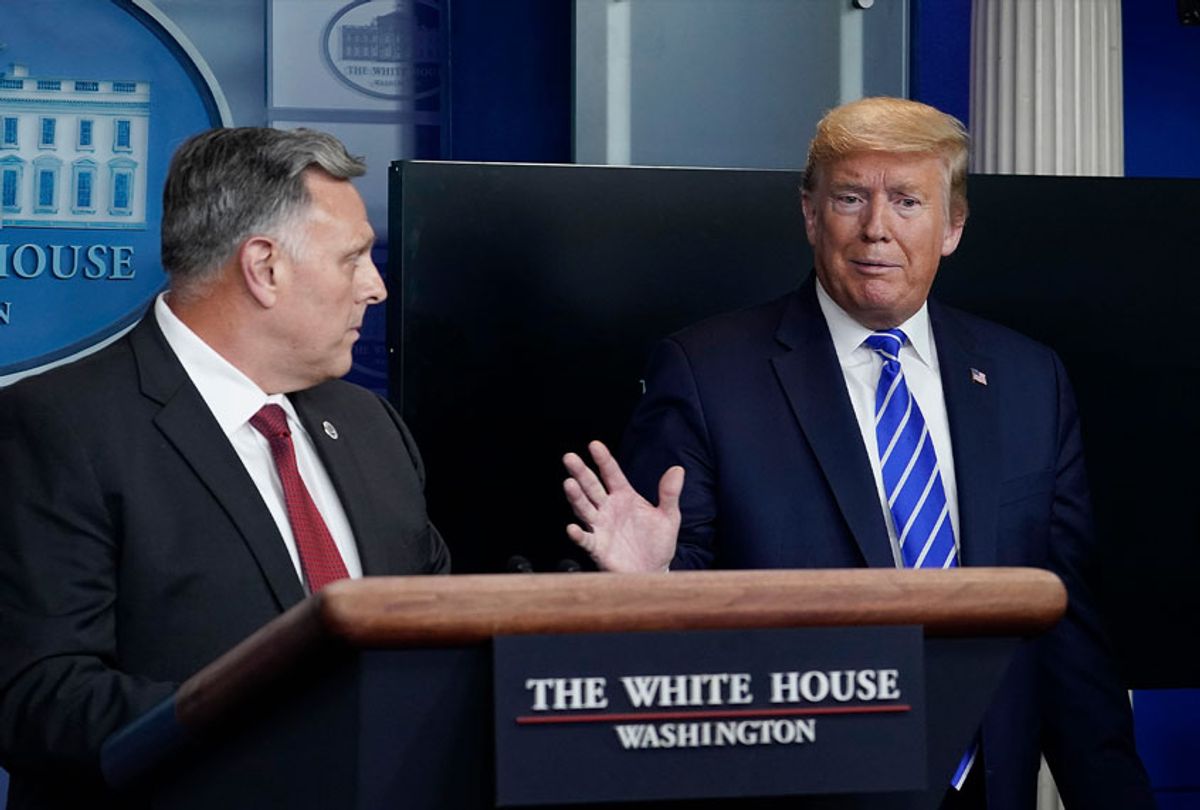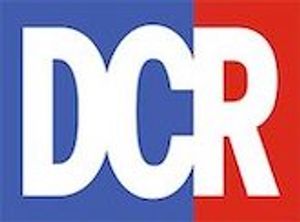Here we go again with a tug between politics and science. Our health is hanging in the balance as resentment grows for leaders who care more for image than public health.
Over the objection of doctors, the Trump administration stunningly told the Food and Administration last week it could no longer regulate laboratory tests. It affects a swath of independent lab tests, including those being developed for coronavirus testing. Then, on Sunday, Trump forced the FDA to approve a minimally tested treatment for COVID-19, using the blood plasma of recovered patients.
That's right. The White House is big-footing the professionals at FDA to skip oversight. The move inevitably will let unregulated, unreliable lab result products and techniques proliferate in a time of pandemic.
Why stop here, one might ask. Why not do the whole job and just shut the FDA, and let the marketplace introduce whatever treatments and vaccine alternatives it may want to sell? Won't the marketplace just fix it all – or might we still be just a tad concerned about whether health products are safe?
The Justice Department already is prosecuting or settling with companies caught up in 3,600 public complaints for items ranging from non-delivery of protective gear to with fake identification schemes from coronavirus-related product lines.
When Joe Biden criticizes Donald Trump for not having a coordinated plan to confront pandemic issues, banning oversight of laboratory procedures is exactly the sort of thing under discussion. This new policy, announced on the Department of Health and Human Services website, comes months into the pandemic and months into complaints about lagging testing and lengthy delays in reporting test result.
We should keep it in mind this week as Trump and Mike Pence declare at the Republican National Convention that they are leading us out of coronavirus.
New warnings
Basically, the long lag time in finally getting a test result has ensured that additional contact with others, negating the whole usefulness of testing as a guide for self-quarantine.
Now, our public health experts are warning that barring the FDA oversight can result in unreliable coronavirus tests on the market, potentially worsening the testing crisis. The experts say this change is unlikely to solve current testing problems, which at this point are largely the result of shortages of supplies such as swabs and chemical reagents.
As usual, the supporters of change – the political hierarchy at the health department – argue stopping FDA oversight will spur faster introduction of more innovative tests from the marketplace, and that this move eliminates FDA bottlenecks.
Indeed, health Secretary Alex Azar argues that FDA lacks specific authority to regulate laboratory-developed tests. FDA Commissioner Stephen Hahn has objected, defending the FDA's role in overseeing safety of health products, particularly in time of a national emergency.
From that kernel of bureaucratic wrangling, we need to overlay a political landscape in which Democrats think there should be an over-arching nationwide plan on expanding testing and contact tracing. Republicans have favored tasking the states to handle the virus as they will and to be herky-jerky about providing the wherewithal to provide funds or supplies as needed.
At the same time, Trump pops up regularly with instant would-be cures that actually have proved dangerous. The government is handing billions of dollars to selected pharmaceutical companies in a desperate attempt to prime the pumps toward development of a vaccine – without a plan in place for how to distribute or even mandate such a vaccine. The antidote is more likely to be a series of vaccines in any case.
So, if I understand this correctly, what we have going on is a political fight about a regulatory process that may or may not be contributing to a slow-down in development of lab processing of insufficient expansion of federally underwritten testing. All of this leaves you and me scratching our heads about the value of testing altogether.
Enter politics
The FDA insists it is doing what it has done in past medical emergencies and should be doing in any case – ensuring that testing is accurate and not fraudulent. As testing has expanded, lab process has as well, moving from the big companies to many smaller ones.
The Washington Post reminded us that in February, the administration was relying almost entirely on a test developed by the Centers for Disease Control and Prevention —standard practice during public health crises — but the test was faulty. It took three weeks for the FDA to loosen restrictions that allowed other tests — at that time, mostly laboratory-developed tests — to come to market.
The general supply of swabs, reagents and other parts and pieces needed by a growing number of labs has not kept up.
The insistence of the White House and Republican states in particular to re-open local economies have tried to downplay testing and any lags in reporting the results. And widespread impatience with the wearing of masks and maintaining physical distancing have worsened the situation. Trump pounds his fists that the United States is doing more testing than any other country, but seems to cherry pick statistics from the very real and dangerous spread of contagion. Instead, this White House has a pattern of looking for people or agencies to blame.
It just feels as if this week, it's the FDA's turn to carry the burden of impatience.
The bottom line is that lags in test results look bad up the line to the political leaders, who seem extremely willing to throw out all regulation to get to faster results to burnish their political chances just before election.
Telling the FDA not to look at lab procedures won't cure coronavirus.




Shares